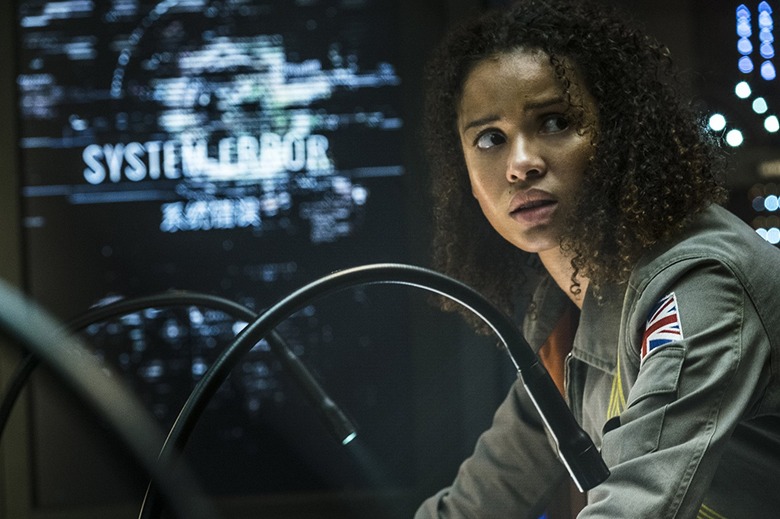'Cloverfield' Crossover Briefly Considered By J.J. Abrams; Other Secrets Revealed
Just in case you're not burned out on Cloverfield news, here's something new. Bad Robot big cheese J.J. Abrams took part in a Facebook Q&A for The Cloverfield Project and revealed that he once considered a Cloverfield crossover that would tie all the movies together and reunite past characters.
One of my favorite things about the Cloverfield franchise is that (for the most part) the films aren't directly connected. The way I see it, Cloverfield is a brand name used to distribute supernatural/sci-fi-type stories, sort of like feature-length versions of The Twilight Zone. In other words, I don't need these films to be direct sequels to each other; I'd personally prefer if all the Cloverfield films remained completely separate.
The Cloverfield Crossover
Cloverfield franchise producer J.J. Abrams, however, may think otherwise. During a recent Facebook Q&A (via ScreenRant) about The Cloverfield Paradox, Abrams revealed a Cloverfield crossover film was considered. Per Abrams, the crossover idea was little more than a "what if" scenario. Specifically, the question was asked, "What if Mary Elizabeth Winstead's character from 10 Cloverfield Lane met Gugu Mbatha-Raw's character from The Cloverfield Paradox?":
"We've talked about versions of things. When we did 10 Cloverfield Lane, we were thinking Michelle – the character Mary Elizabeth Winstead plays – it's such a sort of weird origin story of this kind of incredibly, I think, awesome heroine. The idea of following her story is really cool. And then at one point, we were like, 'You know what would be really cool? What if they crossed paths with Gugu [Mbatha-Raw]'s character Ava?' You start to think of 'what ifs.' And I think the bigger ideas that we've had about where this thing goes haven't necessarily been those ideas, but they've kind of been fun theoretical offshoots."
While Winstead and Mbatha-Raw are both great actresses and I'd love to see them work together in some capacity, I'm glad this idea never got off the ground. The Cloverfield franchise works better if the stories stand alone (save for a few connecting Easter Eggs here and there). You may think otherwise, but (spoilers for The Cloverfield Paradox follow) The Cloverfield Paradox all but confirms that this franchise was never meant to crossover.
Paradox features a direct connection to the first Cloverfield, going so far as to reveal how the original Cloverfield monster was created. This is presented in the laziest, most lackluster way imaginable. Removing this connection completely would've definitely helped improve the film. It would be wise if Bad Robot put this crossover idea to bed for good.
Cloverfield Paradox Secrets, Revealed
During the same Q&A, Abrams, Cloverfield Paradox director Julius Onah and stars David Oyelowo and Roger Davies revealed some background information about The Cloverfield Paradox. Abrams confirms (via The Verge) what we already knew: The Cloverfield Paradox started off as a script called God Particle, and Abrams and company came in to make several substantial edits to turn it into a Cloverfield film:
"[W]e started to think, 'What are ways that this might fit into the world?' But when we started shooting the movie, it was still something we were thinking about. Because the idea for the Cloverfield series was not so much that it be this narrative throughline, but more that they be these really fun sort of thrill rides. Like, if you imagine an amusement park, that's a Cloverfield amusement park, and every ride has a different purpose, but they all connect in some way or another."
This is a pretty good take on the franchise as a whole, and I wish Abrams and company had stuck with it before they inserted the direct connections to the first Cloverfield. Abrams confirmed the film's earth scenes – the most pointless scenes in the film – were added thanks to test audiences. After viewing an early cut of the film, test audiences wanted to know what was happening on earth.
Let this be a lesson to you, filmmakers: don't always listen to test audiences.

